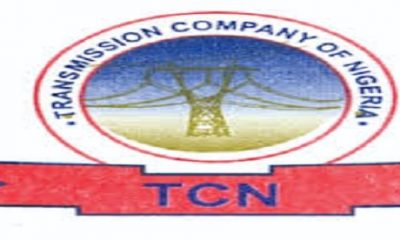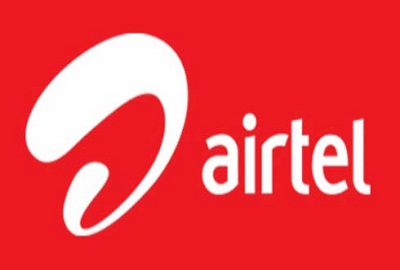Uncategorized
Understanding the Concept of Micro Insurance
The importance of micro insurance in bailing Nigerian out of its low insurance esteem cannot be over estimated. In recent times, the practice has been receiving tremendous support among operators. With the integration of insurance businesses in Africa, especially as the country makes in-road into African countries, experts have opined that the time to embrace micro insurance is now.
According to Dr. Mike Ikupolati, president of West Africa insurance Association, insurance over the world, has been found to be a major player in the socio-economic development of societies and more recently in strive towards poverty eradication in our societies. Insurance in West Africa cannot therefore be an exemption. Given its rightful place in this poverty alleviation crusade, Insurance can help tremendously in uprooting completely the causes and effects of poverty in our societies.
To provide protection against risks, the poor have in the past developed informal and non-insurance mechanisms such as diversifying income sources, building assets by saving money, stocking food and investing in housing and healthcare, strengthening social networks, participating in reciprocal borrowing and lending systems, welfare associations and other informal group-based insurance systems. Some of them are enrolling in formal insurance or pension schemes or other formal social security systems. It also involves managing money well by controlling consumption and maintaining access to multiple sources of credit selling assets, exchanging gifts, cash transfer, diversifying crops etc,.
In West Africa, people had tried “OSUSU” as a means of providing for unforeseen contingencies. Unfortunately these have proved inadequate and have instead retarded economic growth and social mobility. Many elderly people live in poverty due to limited access to pension plans and saving facilities. These are the specialties of micro-insurance products today. Since loan facilities are increasingly impossible to access by the poor, the micro-insurance principles take cognizance of the situation of the poor and hence created products and services that are at the reach of the poor.
With this privileged information at the back of our minds, let us attempt to have a better understanding of micro insurance.
Micro insurance is a financial arrangement to protect low-income people against specific perils in exchange for regular premium payments proportionate to the likelihood and cost of the risk involved (Craig Churchill, 2006). This definition Churchill adds does not refer to the size of the risk-carrier; some are small and even informal while others may be very large companies.
The scope of risk, the risk themselves are by no means ‘micro’ to the households that experience them.
The delivery channel can be done through variety of different channels including small community-based schemes, credit chains or other types of micro finance institutions, but also by enormous multinational insurance companies.
Micro insurance is synonymous to community-based financing arrangements (Peter et al, 2002), including community health funds, mutual health organization, rural health insurance, revolving drugs funds and community involvement in user-free management. Most community financing schemes have evolved in the context of severe economic constraints, political instability and lack of good governance. The common future within all is the active involvement of the community in revenue collection, pooling resource allocation and frequent service provision.
Insurance functions on the concept of risk pooling and likewise regardless of its small unit size and its activities at the level of single community, so does micro insurance. Micro insurance links multiple small units into layer structure, creating networks that enhance both insurance functions through broad risk pools and support structures for improved governance i.e. training data bank, research facilities, access to reinsurance, etc. This mechanism is concerned as an autonomous enterprise, independent of permanent external financial lifelines and its main objective is to pool both risks and resources of whole groups for the purpose of providing financial protection to all members against the financial consequences of mutually determined risks.
Transactions are low-cost and reflect members’ willingness to pay.
Clients are essentially low-net-worth but not necessarily uniformly low and
communities are involved in the important phases of the process such as package, design and rationing of benefits.
The essential role of the network of micro insurance units is over and above what each can do when operating as a stand-alone entity.
And finally that cooperation among stakeholders is the key to successful provision of micro insurance to the poor, who constitute the teaming population in West African; mainly illiterates and are of low-income group who could hardly afford the prices of the conventional insurance products, currently sold by commercial insurers.
Small benefits amount are clearly defined and simple rules and their restrictions are
easily accessible, encompassing claims documents requirements and fast payment of benefits.
Also of value is the need for specially adapted client education, affordable premiums payable in small amounts as exclusive as possible.
To thread successfully in this unpopular road, the insurance practitioners must be facing or are ready to face some obvious challenges. The key principles of innovation for this market with enormous potentials are;
conventional wisdom in delivery of products and services has to be challenged even as
significant investment in customer education is imperative.
Volume is also a basis for returns on investment especially as technology has to be combined with the existing infrastructure.
It is paramount that for micro insurance to be successful,government huge investment in guaranteeing confidence in the sector by the private sector is paramount.
The challenges of micro insurance in West Africa are many. It is vital to know that our local conditions are unfavourable premium income is low, administrative costs are relatively high and infrastructure for insurance support is lacking. These explain why the commercial insurers in West Africa have not taken more interest in this market. Reaching the poor people, many of whom are illiterates and making a living in the informal economy is difficult. And benefit of insurance is often misinterpreted since most of them do not understand why the premiums are not refunded if no claim is made.
These challenges are compounded by the following;
No mechanism to systematically reach the informal workers and the workers themselves are largely unorganized in most cases, especially in cases where there is no employer contribution.
The poor may not be able to afford the full cost of running a conventional insurance due to insufficient government resources to cover recurring expenses and
inadequate infrastructure to provide appropriate services.
Micro-insurance as social security therefore,
fills the gap to provide coverage to the excluded and responds to an urgent need in the absence of formal social security.
Ikupolati had stressed that it also creates delivery mechanisms to extend government programmes to the informal economy while striving to integrate the informal and the formal.
The institutions or set of institutions implementing micro-insurance are commonly referred to as a micro insurance scheme.
There are government policies and programmes to reduce poverty and vulnerability by diminishing people’s exposure to risk and enhancing their capacity to protect themselves but in West Africa, these programmes are not particularly effective.The main obstacles being no mechanisms to systematically reach informal worker as well as the absence of employer contributions as earlier stated.
Micro-insurance is not a new invention. The industrial life assurance sold at factory gates in American cities in the early 1900s made the then Metropolitan life insurance company, the largest industrial life assurance as the forerunner of what today is known as commercial micro-insurance.
It was simply a response to a market demand managed in a manner that made the products appropriate for the market. The delivery channels, agents at each factory gates, were specific to this market. The premiums reflected the particular risks of the factory worker market. Coverage responded to the workers specific needs, premium collection on pay day as the workers exited the factories were efficient. In general, industrial life assurance was then a response to a market that provided access to quality insurance products for low income workers and access to a large market for the insurers.
Today the need to meet the demand of the poor is becoming increasingly significant as majority of the population in West Africa especially live in the rural areas where access to micro-finance has been limited and hence insurance provisions are at low ebbs. Consequently, the provision of insurance products to micro-finance clients is becoming increasingly common and popular. Much has been learnt over the past decade about how to design products to better meet the needs of the poor.
The provision of any financial services to the poor must start with an understanding of client demand.
What are the financial needs of the poor?
In developing economics and particularly in the rural areas, many activities that would be classified in the developed world as financial are not monetized, that is, money is not used to carry them out. Almost by definition, poor people have very little money. But circumstances often arise in their lives in which they need money or the things money can buy.
In Stuart Rutherford’s recent book The Poor and Their Money, he cites several types of needs
Lifecycle Needs: such as weddings, funerals, childbirth, education, home building, widowhood, old age.
Personal emergencies such as sickness, injury, unemployment, theft, harassment or death as well as disaster such as fires, floods, cyclones and man-made events like war or bulldozing of dwellings.
The work of Rutherfod, Wright and others had caused practitioners to reconsider a key aspect of the micro-credit paradigm: that poor people get out of poverty by borrowing, building micro-enterprises and increasing their income. The new paradigm places more attention on the efforts of poor people to reduce their much vulnerability by keeping more of what they earn and building up their assets.
While they need loans, they may find if as useful to borrow for consumption as for micro-enterprises.
A safe, flexible place to save money and withdraw it when needed is also essential for managing household and family risk.
Poor people over the years have found creative and often collaborative ways to meet these needs, primarily through creating and exchanging different forms of non-cash value. Hence, the idea of micro insurance cannot be totally strange to them.
Therefore, micro insurance can be offered in many areas among them; health risks, injury or death as well as property risks such as agriculture risks such as low yield, theft travel risks etc,. Individuals in the low-income bracket have needs and preferences that may vary. Micro insurance product design must therefore reflect this heterogeneity and premium payments should also be tailored to the customers’ cash flow position.
Uncategorized
Ina Alogwu Joins 9mobile as Chief Digital and Innovation Officer
9mobile has appointed Ina Alogwu as its new Chief Digital and Innovation Officer (CDIO), marking another significant step in the company’s business transformation agenda.

In his new role, Alogwu will be responsible for guiding the development and execution of 9mobile’s long-term strategy across the entire digital and technology ecosystem, including new technologies, digital platforms, and business models while nurturing a culture of innovation within the organization.
His appointment demonstrates 9mobile’s firm commitment to driving digital transformation and enhancing its innovative capabilities to better serve customers and stay ahead of market trends.
Alogwu is a visionary leader and seasoned strategist with nearly two decades of transformative experience in digital commerce, mobile payments, and technology ecosystems, making him an invaluable addition to 9mobile’s leadership team.
He has a proven ability to identify emerging trends and harness them to develop and execute groundbreaking digital products and strategies. His expertise spans product innovation, data strategy implementation, and agile business transformations, all of which have delivered significant and sustainable results across diverse industries and regions.
He joins 9mobile from ARM Holding Company, Nigeria, where he was the Group Director, Digital Transformation and spearheaded innovation initiatives, implemented a robust data strategy, and managed venture-building programmes that supported numerous African tech startups.
His very distinguished and diverse professional journey also includes an impactful tenure at Interswitch Limited, where he held roles such as Group Head, Verve Digital, and Group Head, Payment Processing. In these roles, he led the creation of groundbreaking payment platforms and digital solutions across West and East Africa.
Earlier in his career, Alogwu held roles at the Economic and Financial Crimes Commission (EFCC) as a Training Specialist and worked at Integrated Business Strategies as a Business Analyst.
Speaking about the appointment, 9mobile CEO Obafemi Banigbe expressed confidence in Alogwu’s ability to lead the company’s innovation efforts, saying, “Alogwu’s broad professional background makes him the perfect fit for our innovative and business transformation journey as he joins a team of recently appointed senior business leaders to drive this process and the next phase of our growth.
“His role is crucial for navigating today’s fast-paced digital environment. And he has been entrusted to lead the charge in harnessing new technologies, driving digital transformation, and ensuring the company remains adaptable to change, which is integral to fostering innovation and positioning 9mobile as a forward-thinking leader in its industry.”
The New CDIO said, “I’m delighted to join 9mobile and collaborate with the CEO and the leadership team on the innovative initiatives already in progress.
As we navigate the rapidly evolving digital landscape, I’m eager to leverage my expertise in digital strategy, technology, and innovation to drive 9mobile’s mission to deliver exceptional customer experiences and achieve our strategic objectives.”
Alogwu’s academic credentials further underline his readiness for this role. He holds an Executive Master’s in Digital Transformation and Innovation Leadership from IE Business School, Madrid, and a Postgraduate Diploma in Digital Business from Emeritus Institute, in collaboration with MIT and Columbia Business School.
He also completed the Senior Management Program at Lagos Business School, Pan-Atlantic University, and earned a BSc. in Geology & Mining from the University of Jos, Nigeria.
His education is further enriched by certifications in Product Management, Lean Six Sigma, and Strategic Innovation, equipping him with a robust foundation to drive innovation, lead digital transformation, and achieve business excellence in competitive landscapes.
His ability to combine academic knowledge with practical expertise has positioned him as a trailblazer in the digital commerce and technology sectors.
Beyond his technical expertise, Alogwu is adept at cultivating and managing strategic relationships with global multilateral organizations and financial institutions, leveraging these partnerships to unlock profitable opportunities. He has consistently demonstrated excellence in leading multicultural teams and navigating complex, multi-stakeholder environments to deliver transformative outcomes.
Uncategorized
NAICOM Signs Agreement with NDPC on Data Protection in Insurance Sector
The National Insurance Commission (NAICOM), has signed agreement with the Nigerian Data Protection Commission (NDPC) with the aim of enhancing data protection within the insurance sector.

According to NAICOM, the Memorandum of Understanding (MoU) has as its objectives training and capacity building in the area of providing training to enhance awareness and skills in data protection, establishing privacy clinics by setting up specialised clinics to address data protection concerns and provide guidance.
NAICOM said other objectives of the agreement include conducting compliance activities, regularly monitoring and enforcing compliance with data protection regulations, promoting awareness in the area of educating insurance companies on the importance of data protection and the benefits of adhering to best practices.
Developing data protection guidelines through creation of specialized guidelines for insurance institutions to ensure they are equipped to handle data protection responsibilities effectively.
NAICOM said the collaboration marked a significant milestone in safeguarding the personal data of insurance policyholders and promoting trust in the insurance sector.
The commission said to ensure the effective implementation of the agreement, an implementation committee would be established. The committee, the commission said, would comprise of representatives from the two agencies, as well as other key industry associations, including the Nigerian Insurers Association (NIA) and the Nigerian Council of Registered Insurance Brokers (NCRIB).
Uncategorized
5 Benefits of MTN Mobile Ads for your Business
Businesses worldwide are increasingly embracing mobile advertising services, allowing them to connect with potential customers directly on their smartphones and engage with them more effectively.

This trend is rapidly gaining momentum, and companies in Nigeria are also taking part in this shift.
Every day, more Nigerian businesses are seeking the most efficient strategies to reach their target audiences and convert them into loyal customers.
MTN Nigeria is redefining digital advertisement with MTN Mobile Ads. With a rich customer base of 79.5 million subscribers in Nigeria, MTN Mobile Ads continues to help businesses reach millions of customers nationwide.
Here are five reasons you should use MTN Mobile Ads for your business advertisements:
Targeted marketing
MTN Mobile Ads uses first party data to enable specific targeting of audience based on behaviour, interests and demographic. This ensures that your marketing efforts are directed toward the most relevant audiences, thereby increasing engagement and conversion.
Data-Driven Insights:
Businesses can gain valuable insights from their advertising campaigns, allowing them to fine-tune their strategies for maximum impact. This data-driven approach helps in optimizing campaigns based on real user behaviour and preferences
Diverse advertising formats
This service supports several advertising formats including targeted SMS, marketplace listing on the MyMTN app, display banners, and Rich messaging services (RCS) across both mobile and web platforms. This versatility allows your business to customize your marketing strategy to suit different audience preferences and increase engagement opportunities.
Data-free solutions
MTN Mobile Advertising provides data-free solutions. That means users can view your Ads with or without data. This feature significantly increases engagement rate as it allows your business connect with customers who may have been avoiding ads to save their data.
Cost-effective
With MTN Mobile Ads, you can choose an advertising plan that suits your budget. This flexibility allows businesses to enjoy the benefits of advertising without overspending.
As competition in businesses increase, the need to make advertising a crucial part of your marketing strategy cannot be over-emphasized.
MTN’s Mobile advertising services are the most result-oriented strategy your business should engage in so you can have the same opportunities your competitors may have.

 News3 days ago
News3 days agoTCN Reveals N8.8 Billion Expenditure on Restoring Destroyed Transmission Towers

 Telecom3 days ago
Telecom3 days agoGoogle, Meta Criticize Australia’s Rush to Pass Social Media Ban for Under-16s

 Broadcasting2 days ago
Broadcasting2 days agoTETFund Suspends Foreign Scholarships Due to Rising Costs and Abscondment

 E-Financial2 days ago
E-Financial2 days agoUBA Group Sets Foot in France with Full Banking Services

 News2 days ago
News2 days agoStanbic IBTC Asset Management Unveils Anti-scam Measures to Protect Mutual Fund Holders

 E-Financial2 days ago
E-Financial2 days agoMoneyMaster Promotes Financial Inclusion, Offers more Bonus to Customers

 E-Financial3 days ago
E-Financial3 days agoPenCom, PenOp to Integrate Uncovered Workers into Micro Pension Plan

 Uncategorized2 days ago
Uncategorized2 days agoNAICOM Signs Agreement with NDPC on Data Protection in Insurance Sector






















